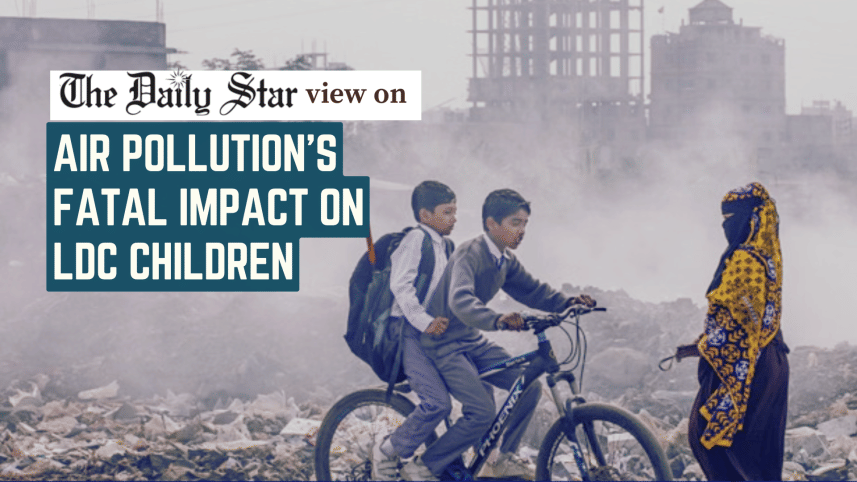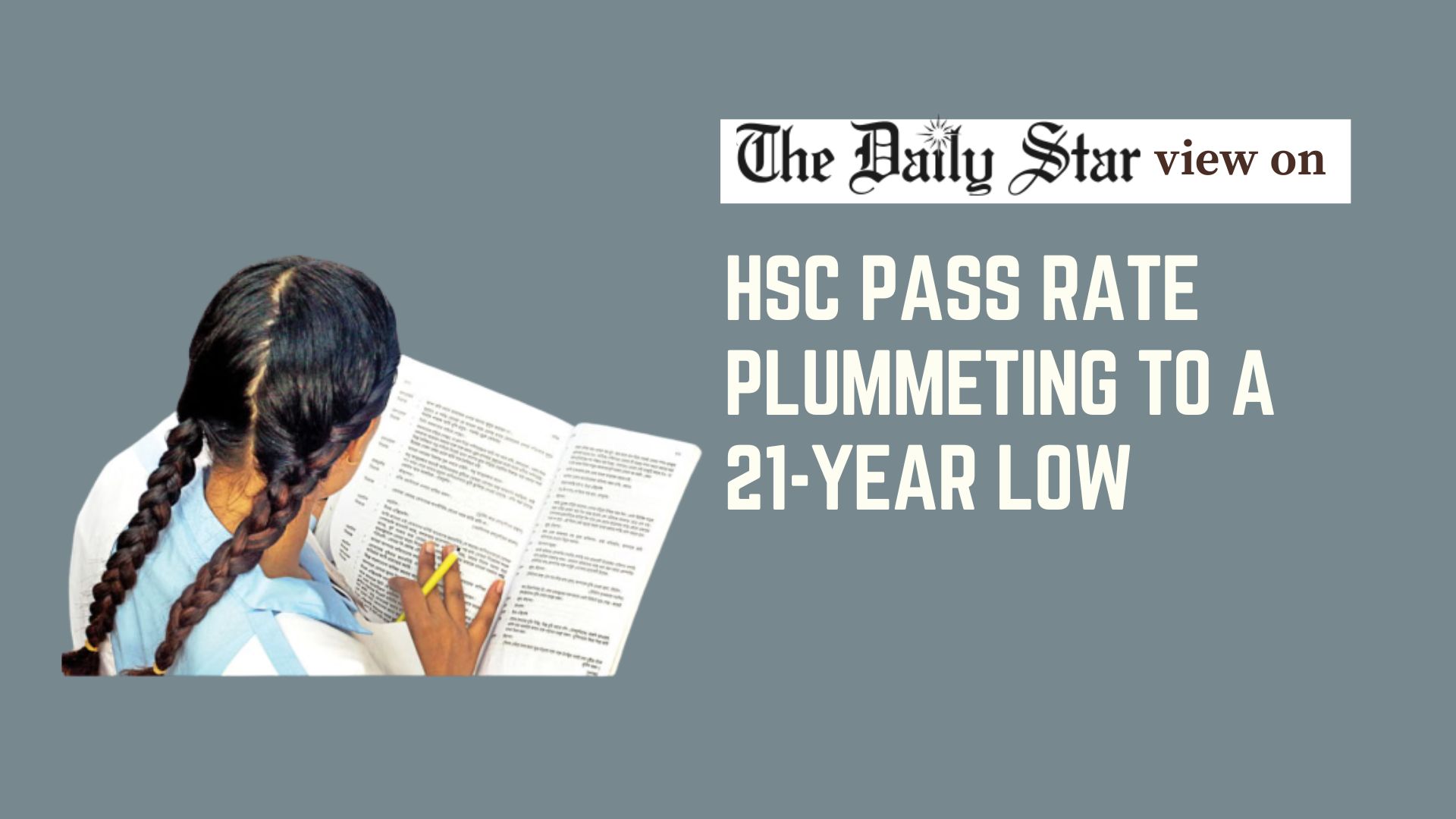Our children deserve clean air

We are unnerved by a new report revealing the disproportionate effects of air pollution on children, especially in the least developed countries, including Bangladesh. Children under five die from air pollution-related causes nearly six times more often than adults. Meanwhile, children in LDCs face air pollution death rates 94 times higher than those in most-developed countries.
Bangladesh, with one of the worst air quality ratings worldwide, faces a dire situation. It ranked as the second-most polluted in 2024, while in 2021, air-pollution led to over 19,000 recorded deaths in children under five in the country. Besides, a decade-long study on children of this age group in Dhaka revealed that particulate matter (PM) 2.5 from brick kilns was the primary contributor to their respiratory issues. However, vehicular and industrial emissions, construction, and waste burning also produce PM 2.5. Furthermore, Bangladesh, with the lowest access to clean cooking technologies in Southeast Asia, has a high rate of household air pollution. This disproportionately affects pregnant women and infants. Mothers using high-polluting solid cooking fuels, such as coal, wood and dung, are 2.6 times more likely to have babies with low birth weight. Regardless of where the cooking takes place, the use of solid fuels was found to raise the likelihood of pregnancy complications by 36 percent. Moreover, children between the ages of 3-5 who are exposed to solid fuel pollution are 47 percent more likely to experience developmental delays compared to unexposed children.
A deeply ingrained reliance on polluting infrastructure and fossil fuels has created an environmental justice crisis, with children bearing the heaviest health burdens. Although authorities ordered a halt to brick-making operations, except clean ones, in Savar from September onwards, the country's spending on fossil fuels remains significantly higher than that on environmental pollution mitigation measures. This financial imbalance highlights how existing systems perpetuate a cycle of environmental harm. It is high time Bangladesh framed air pollution not just as an environmental issue, but as a critical public health and child rights crisis. The country must redirect its financial priorities from fossil fuels to clean air, accelerate the transition to clean cooking solutions, enforce strict regulations on industrial polluters, launch a public health campaign, and frame the issue as a matter of justice for the section of the population who were born in a polluted world.



 For all latest news, follow The Daily Star's Google News channel.
For all latest news, follow The Daily Star's Google News channel. 
Comments